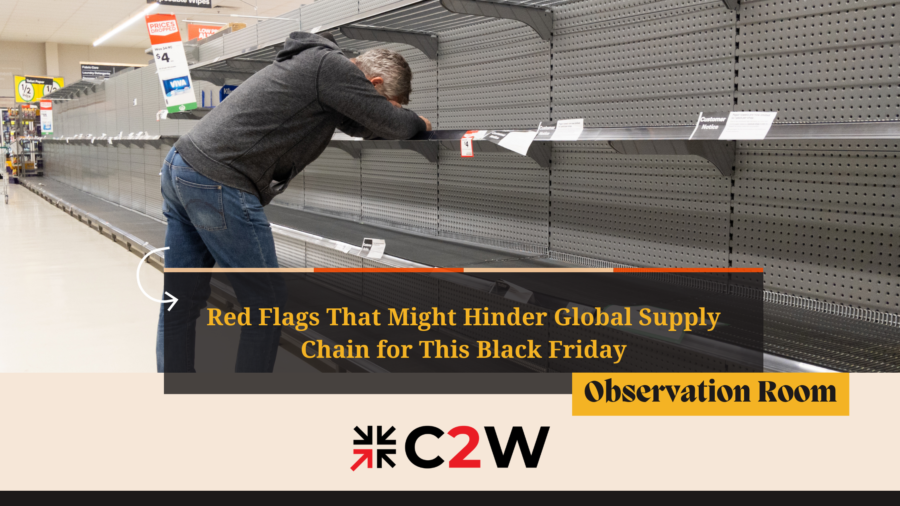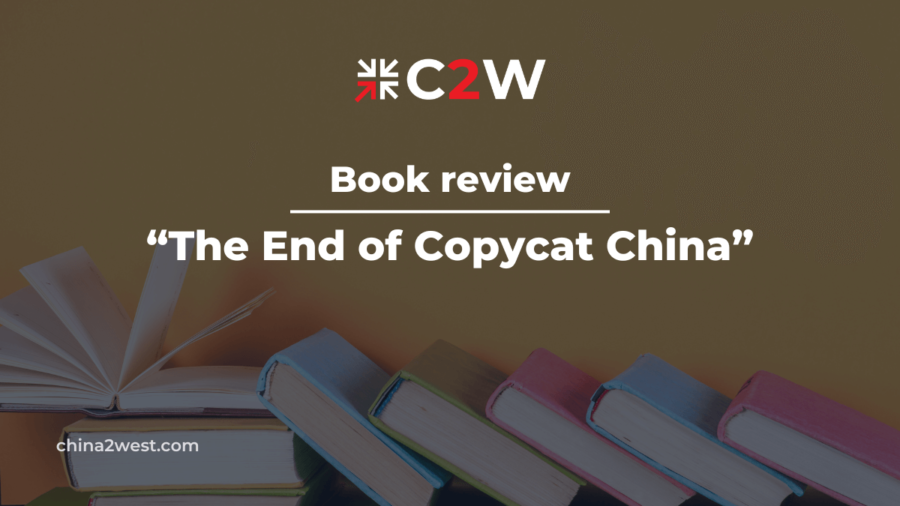For consumers, we are still three months away from our annual holiday shopping spree; but for businesses in the western world, we are only three months out to stock up on inventory for probably the busiest turnaround time of the year. Ripple effects of current events on the global supply chain may not play out right now, but will certainly be reflected by around October, when orders for holiday pre-sale have been placed.
As if COVID had not been destructive enough for the last two years, geopolitics added even more fuel, if not throwing a gas tank, into the fire.
There’s no need to stress again how China is vital to global supply for goods.
Against the backdrop of the two superpowers seemingly being on track to decouple, in spite of their long-standing trade partnerships with one another, some domestic issues also factor into the supply chain prospect for the holiday season.
Fallout of Pelosi’s Visit to Taiwan & US CHIPS Act
We all know what happened in Taiwan early this month.
Beijing took action to retaliate, including active military drills encircling the island since August 4, yet which is still an ongoing matter.
This level of military response is unheard of, and so far it has hindered shipping, especially natural gas to Taiwan itself and North Asia, as Taiwan has one of the busiest ports as well as the busiest waterways on earth.
You may think it is not consequential enough to the west in that regard given its geographical distance, but this is not the worst part.
The problem lies in chips.
Taiwan has the one of the largest semiconductor manufacturing companies in the world, TSMC (Taiwan Semiconductor Manufacturing Company). The chip manufacturer has contributed more than 50% of market shares of the global semiconductor foundry in Q1 of 2022.
It is also one of the only two manufacturers that produce the most advanced 5nm chips supporting tech giants like Apple, Qualcomm and Huawei.
There’s no denying its critical role in supply of consumer electronics and home appliances.
Beijing also issued sanctions on export of natural sand to Taiwan, another key component in chip production, but its detriment is reported to be limited because of Taiwan’s small reliance on imported sand.
So the component supply is not the main issue. Then what gives?
The answer is its awkward position in the geopolitics between China and the US.
During Nancy Pelosi’s trip in Taiwan, she met with Mark Liu, the chairman of TSMC. Their meeting corresponded with the recently passed Chips And Science Act, which was also addressed in their conversation.
The bill is set to boost the US semiconductor manufacturing by giving government subsidies to domestic chip manufacturers and counteract the Chinese chip industry. TSMC will be one of the beneficiaries for its new chip plant in Arizona planned to begin production in 2024.
In light of the fierce response, this definitely won’t be welcoming news to Beijing, especially when this meeting and its Arizona plan were interpreted as shifting away from neutrality and taking the side of the US, amid the fact that the market shares from the other side of the strait has shrunk to 10%, down from 20% just two years ago.
But the Middle Kingdom is still undeniably important for TSMC. Due to its dominance on global supply chain, especially in electronic goods, many major suppliers of big names like Apple and Microsoft are still based in the World’s Factory, importing large quantities of chips every year to assemble their products.
So far there’s no retaliatory move against TSMC, as a result of its unwavering reliance on Taiwanese chips. But with the intensifying situation between the two governments, no one can be rest-assured if TSMC will be the next target.
And the world is already going through a chip shortage since the pandemic. The Russia-Ukraine War is already rubbing salt into the wound by causing short supply of neon and metal palladium, important materials in chip making.
It may not be too late to prepare for any late delivery if you are selling any electronic products, especially when the confrontation is quite likely to keep escalating and disrupt global supply chain.
Power Restrictions Still Back, After all
Power restriction is probably one of the worst nightmares, following COVID, for Chinese manufacturers.
In order to reach its goal on carbon emission last year as coal is still China’s main source of energy, China capped the electricity usage, prompting factories to cut hours.
This year, the heatwave hit.
This round of heatwave scorched several continents, but when it comes to China, the temperatures in several regions reached a record high, well beyond 40 degrees Celsius (104 degrees Fahrenheit).
As much as China has pledged to avoid power rationing earlier this year, in order to combat the heat and ensure supply of residential electricity, several major manufacturing hubs, such as Jiangsu, Zhejiang and Sichuan, have imposed power restrictions on certain industries like steel, copper, polyester and textile.
But it still hasn’t been implemented nationwide, and the National Energy Administration (NEA) also promised not to issue mass power cut.
Meanwhile, China stocked up on coal supply from inside and outside to provide for the consumption peak in summer.
The good news is that the summer is coming close to an end, and the Guangdong province, so far the largest electronic manufacturing hub even in the world, has not issued electricity restriction on factories yet.
But the impacts on the upcoming orders still remain to be seen.
It’s Still COVID, This Time in Yiwu
For those who import small commodities from China, Yiwu is no stranger.
The little city of roughly 1 million inhabitants in Eastern China has the world’s largest small commodities wholesale market, having sold 54.69 billion USD of goods worldwide via ecommerce just last year.
Its vibrancy has recently come to a halt, as the city is placed under lockdown due to surging cases, right before all the suppliers are just about to ramp up production for the Christmas season.
So far, the lockdown, issued on August 12 and scheduled to last for three days, has just been extended until there are no new cases for seven days in a row.
Except for those making medical devices or on the government’s “White List” designed to maintain necessary operation for less disruption to supply chain, factories were asked to suspend operation.
Its status can determine if we can have a proper Christmas. Not known to many, 2/3 of the world’s Christmas products come from Yiwu, given the fact the market exports to 210 countries and plays quite a noteworthy role in global supply chain.
Its significance is not only represented in the sales number for Christmas, but also as a somewhat sarcastic indicator of the US politics, as majority of campaign products are imported from there. Back in 2016, the “Yiwu Index” successfully predicted Donald Trump’s win by its export of MAGA products.
So it may not only impact your Christmas, but also the midterm.
No one knows how long this will last. Some businesses have already decided to turn to other suppliers outside for alternatives. But if this drags on, there’s no doubt it’d take a toll on our Christmas sales.
It isn’t all bad news, such as the easing container shortage resulting from oversupply, and China’s slow but gradual relaxation on COVID restrictions. Our world is becoming more unpredictable than ever, so it’s always wise to prepare for the worst and hope for the best, and that’s how many international businesses act. Despite all the risks, they still want to reap the fruits of China manufacturing’s development over the years and create their dream products there. If you are looking to join them and make your business thrive, a western company based in China will perfectly suit. C2W is wholly British-owned and managed with 17 years of manufacturing experience in China. We help bridge the gap between western companies and Chinese suppliers. If you are looking for alternatives to China, we also have expanded our service into Southeast Asia that can help you solve supply problems. Contact us if interested!


